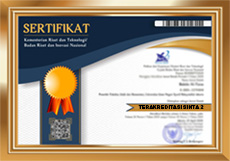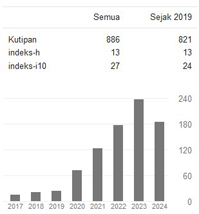Filsafat Kapabilitas dan Kemungkinan Politik Pengakuan yang Mutual (Merekonstruksi Filsafat Praktis Paul Ricoeur)
Abstract
This article focuses on Capability Approach in Philosophy and the Possibility of Politics of Recognition: to reconstruct Ricoeur’s practical philosophy. Based on his philosophical question: what is capable self? we search for the meaning of human capability which will imply an understanding of the self and the recognition of its basic personal capacities, from where proceeds mutual recognition. Since this is the main goal of Ricoeur, I choose to expose this part of his work with the objective of structuring its ethical aim, which is to live good life with and for others in just institutions. Here, love, justice and the poetics of the gift will play significant roles. This study is divided into three main parts. Part One is a discussion of the phenomenology of the capable self that aims to emphasize the meaning of personal capacities in terms of self’s ability. Part Two presents ethics and the politics of recognition in three sub-themes: self-esteem, solicitude for others and justice in institutions. This leads to the Part Three which completes the previous study by analyzing the relationship between love, justice and possibility of the politics of mutual recognition.
Keywords: Capable self, Mutual Recognition, Ethical Aim and the Poetics of the Gift.
Full Text:
PDFReferences
Analisa Caputo, “A Second Copernican Revolution: Phenomenology of the Mutuality and Poetics of
the Gift in the last Ricoeur,” dalam Studia Phaenomenologica, Romanian Journal for Phenomenology. Vol. 13, Bucharest: Humanitas, 2013.
-------------------, “Paul Ricoeur, Martha Nussbaum and the Incapacity Approach,” dalam Roger W.H. Savage (ed.) Paul Ricoeur in the Age of Hermeneutical Reason: Poetics, Praxis, and Critique. Lanham: Lexington Books, 2015.
Axel Honneth, The Struggle for Recognition: The Moral Grammar of Social Conflict, Cambridge: The MIT Press, 1995.
Battista Mondi, L’uomo: Chie È? Elementi di antropologia filosofica, Milano: Editrice Massimo,
Benedict Anderson, Imagined Communities: reflections on the origin and spread of nationalism,
Verso: 2016.
Charles Taylor “The Politics of Recognition” dalam Amy Gutmann (ed.) Multiculturalism, Princeton:
Princeton University Press, 1994.
Feinberg J, Rights, Justice and the Bounds of Liberty: Essays in Social Philosophy, Princeton:
Princeton University Press, 1980.
Gene Outka, Agape, An Ethical Analysis, New Haven and London: Yale University Press, 1976.
Hegel’s Philosophy of Right, T.M. Knox (trans.), Oxford: Oxford University Press,1967.
Nichomachean Ethics, 1106a22 dalam Aristotle, The Complete Works of Aristotle, 2 vols. Jonathan
Barnes (ed.), Princeton: Princeton University Press, 1984.
Paul Ricoeur, “Capability and Rights,” dalam Séverine Deneulin, Mathias Nebel dan Nicholas
Sagovsky (eds.), Transforming Unjust Structures, The Capability Approach, Dordrecht:
Springer, 2006.
---------------, “Ethics and Human Capability,” dalam John Wahl, William Scheiber and W. David Hall (eds.) Paul Ricoeur and Contemporary Moral Thought. New York and London: Routledge,
---------------, “Asserting Personal Capacities and Pleading for Mutual Recognition,” dalam Brian Treanor and Henry Isaac venema (eds.), A Passion for the Possible: Thinking with Paul
Ricoeur, New York: Fordham University Press, 2010.
---------------, “Life in Quest of Narrative” dalam David Wood (ed.), On Paul Ricoeur: Narrative and Interpretation, London: Routledge, 1991.
---------------, The Course of Recognition, David Pellauer (terj.), Cambridge, Masshachusetts: Harvard University Press, 2005.
---------------, Memory, History and Forgetting, Kathleen Blamey & David Pellauer (trans.), Chicago: The University of Chicago Press, 2004.
---------------, Oneself as Another, Kathleen Blamey (trans.), Chicago and London: The University of Chicago Press).
---------------, ‘le Philosophie, le Poète et le Politique,’ dalam L’homme Capable, autour de Paul
Ricoeur, Bruno Clément (ed.). Paris: PUF, 2016.
---------------, “On Life Stories,” dalam On Paul Ricoeur: The Owl of Minerva, ed. Richard Kearney,
Burlington: Ashgate Publishing Company, 2004.
---------------, History and Truth. Charles A. Kelbley (trans.), Evasnton, Illinois: Northwestern
University Press, 1965.
---------------, Fallible Man, Charles Kelbley (trans.) New York: Fordham University Press, 1968.
---------------, Soi-Même Comme un Autre, Paris : Éditions du Seuil,1990.
---------------, From Text to Action: Essays in Hermeneutika II, Kathleen Blamey and John B.
Thomson, Evanston, Illinois: Illinois Northwestern University Press, 1991.
---------------, Parcourse de la Reconnaissance, trois études, Paris: Éditions, 2004.
---------------, The Just, David Pallleuer (trans.), Chicago and London: the University of Chicago Press, 2000.
---------------, The Hermeneutics of Action, Richard Kearney (ed.), London: Sage Publications, 1996
---------------, Lectures on Ideology and Utopia, George H. Taylor ed. New York: Columbia University Press, 1986.
---------------, Love and Justice: dalam Figuring the Sacred: Religion, Narrative and Imagination,
Mineapolis: Fortress, 1995.
---------------, Freedom and Nature: The Voluntary and Involuntary. Erazim V. Kohak (trans.),
Evanston: Northwestern University Press, 1966.
---------------, Réflexion Fait, Autobiographie Intellectuelle, Paris: Éditions Esprit, 1995.
Pope Francis, Let Us Dream: the path to a better future, in conversation with Austen Ivereigh, New York, London, Toronto, Sydney, New Delhi: Simon & Schuster, 2020.
Thomas Hobbes, Leviathan, Indianapolis: Hacket, 1994.
Olivier Abel and Jérôme Porée, le vocabulaire de Paul Ricoeur. Paris: Ellipses Éditions, 2007.
Jurnal:
Leo Kleden, “Wahyu Alkitabiah Dalam Tinjauan Hermeneutika Ricoeur,” Jurnal Ledalero, vol. 19.
No, 2, 2020, hal. 169-184.
Felix Baghi, “Narasi Diri, Yang Lain dan Institusi Yang Adil: Hermeneutika Diri dan Etika Politik
Paul Ricoeur, Jurnal Ledalero, vol. 11, no. 1, 2012, hal. 53-80.
Paul Ricoeur, “Fragility of Political Language,” Dalam David Pellauer (trans.) Philosophy Today. 31.
Hal. 35-44.
DOI: http://dx.doi.org/10.31385/jl.v20i1.229.51-65
Refbacks
- There are currently no refbacks.

This work is licensed under a Creative Commons Attribution-NonCommercial-ShareAlike 4.0 International License.

Copyright© 2015 JURNAL LEDALERO This work is licensed under a Creative Commons Attribution-NonCommercial-ShareAlike 4.0 International License.
Institut Filsafat dan Teknologi Kreatif Ledalero Jalan Trans Maumere-Ende - Sikka - Flores - Nusa Tenggara Timur - Indonesia Telp/Fax: 0382 2426535










